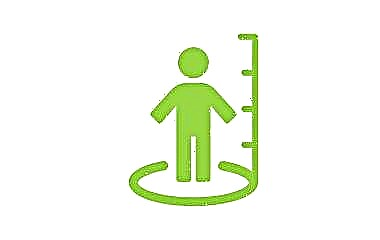If a couple has been trying to conceive a baby for a long time, but all attempts are unsuccessful, perhaps the reason is infertility. Fortunately, this condition is not hopeless. So do not immediately give up the dream of your children. Instead, it is better to understand the premises that led to the problems with conception and try to eliminate them.

The physiology of a woman is such that even a perfectly healthy woman cannot get pregnant for quite a long time, even with absolutely no protection. Why does this happen? The thing is that a woman can get pregnant only on strictly defined days - during ovulation. On average, there are very high chances of getting pregnant in just one or two days of the menstrual cycle, during which ovulation occurs. When planning a pregnancy, you need to take into account that about every fifth to sixth ovulation is infertile. It is believed that a healthy couple will be able to conceive a child within one year, and if this does not work out for her, there is a good reason to see a doctor.
Reasons that prevent getting pregnant
Infertility is a whole complex of symptoms and diseases that negatively affect the reproductive function of one of the partners or both at once. If it was not possible to conceive the first time, it is too early to talk about infertility. Such a disease can be suspected only if it is not possible to become pregnant for a long time. The reasons can be very different, the most common of them are the following:
- Very often endocrine system dysfunctions lead to infertility. About 40% of women who cannot get pregnant suffer from endocrine infertility - this is a condition when ovulation is completely or partially absent. If you cannot conceive for a long time, the first step is to get tested for hormones. Lack of ovulation can also be associated with dysfunctions of the genitals, thyroid, brain, adrenal glands. Lack of ovulation is the most common reason for pregnancy failure. Doctors should deal with the causes of ovulation, but before contacting them, you should make sure that attempts to conceive were made at the right time - during ovulation. In order to calculate the time of the onset of ovulation, there are various, including very accurate, methods.
- Polycystic ovary syndrome is also among the pathologies that often lead to infertility. The exact causes of the disease are still unknown to science, but experts are of the opinion that it is congenital. In any case, polycystic ovary syndrome is now being successfully treated, although it requires long-term therapy with strict adherence to all doctor's prescriptions. The disease provokes the excessive production of male hormones, which is why numerous cysts are constantly formed in the female reproductive system. Outwardly, these are water bubbles of different sizes, and they are detected only by ultrasound. The consequence of the pathology is the disruption of the ovaries with the absence of ovulation.
- Another possible cause of female infertility is complete or partial obstruction of the fallopian tubes. It occurs due to narrowing of the lumen in the fallopian tubes or the formation of adhesions in them. The hole becomes narrow, so sperm cannot penetrate it to fertilize the egg. This pathology can arise under the influence of various factors, including inflammation in the reproductive system, infectious diseases, due to which adhesions are formed. Surgery may be required to eliminate the obstruction of the fallopian tubes, and artificial insemination is also a solution for many. If the process is not yet too started, lifestyle changes and treatment of existing inflammations will help to cope with the problem.
- If pregnancy does not occur within one, two months, six months, you should be examined for the presence of endometriosis. This is a disease in which the cells of the endometrium (the inner lining of the uterus) begin to spread throughout the body, taking root and starting to grow in other organs. The probable causes of the pathology are inflammation of the internal genital organs, disorders in the production of hormones. The consequence of advanced endometriosis is often the inability of the egg to attach to the uterine wall, which causes infertility. Treatment involves taking hormonal drugs or surgery. The earlier the disease is detected, the more chances you have to cope with the disease and conceive a long-awaited child.
- Pathologies of the uterus of different origins also often lead to the inability to become pregnant. Such diseases include: fibroids, endometrial diseases, intrauterine septum, hypoplasia, adenomyosis. First, it is necessary to undergo an examination to identify pathology, and based on its results, the doctor will select the appropriate treatment. It includes taking hormonal drugs, physiotherapy, medications, surgery may also be required. Pathologies of the uterus are divided into congenital and acquired, that is, arising as a result of past diseases.
- If it is not possible to conceive even during ovulation, and the examination and tests do not reveal any apparent reasons, the problem may lie in the functioning of the immune system. Immunity is sometimes distinguished by “excessive zeal” and tries to protect a woman not only from disease-causing viruses and microbes, but even from pregnancy. Immunity forces the body to reject spermatozoa or the ovum, perceiving them as foreign organisms. Usually, with such disorders, the cervical mucus contains an increased amount of antibodies, which is detected by test results. This condition can be corrected with certain medications or other methods, including insemination.
- Even if the doctor could not determine the reason why a woman cannot get pregnant, perhaps this is not due to physical pathologies, but psychological factors. Some people fail to conceive because they get hung up on some problems, suffer from depression, are constantly under stress, are a lot nervous, afraid of responsibility, childbirth, etc.
- Individual features of the physiology of partners. In simple terms, the incompatibility of a particular pair. For example, each of the partners individually is able to conceive a child, but together they cannot do this. The reasons for this can be very different - from the rejection of sperm by the vaginal microflora to the characteristics of a woman's immunity. The situation can be clarified using a special analysis - the Shuvarsky-Huner test.
- Male infertility. This also happens, although somewhat less frequently than female infertility. Sperm failure can be associated with diseases such as varicocele, dropsy of the testicle, cryptorchidism, mumps, and tuberculosis. If a man is fond of bodybuilding, the reason for his infertility may be taking steroids.
[sc name = ”rsa”]
How to get pregnant after unsuccessful attempts?
If attempts to conceive a baby for a long time are unsuccessful, this is an occasion to seriously think about your health and go to the doctor. Someone may be scared off by the prospect of taking a lot of tests, but do not be afraid of this. A thorough examination of both partners is necessary, because the causes of infertility can be anything - from psychological problems to congenital pathologies and chronic diseases.
Fortunately, many problems can be eliminated, especially with timely access to a doctor. It should be noted that it is better to be examined not when the couple begins to suspect infertility, but already at the stage of pregnancy planning. For example, if a woman has obstruction of the fallopian tubes, but she herself does not know about it, she will still be able to conceive, only the ovum is fixed in the tube, and not in the uterus, as it should be. In such cases, an ectopic pregnancy occurs, which ends with a rupture of the tube and its removal. An ectopic pregnancy is also dangerous because, without adequate treatment, subsequent attempts to conceive a baby will lead to a similar result, and the removal of both tubes excludes the possibility of becoming pregnant naturally.
Tips for those who can't conceive

How to get pregnant faster if all attempts are unsuccessful? In this case, there are several recommendations:
- Avoid stressful factors. Assess the lifestyle you are leading. If you are often nervous at work and at home, are upset, worried about something, suffer from depression, it is possible that unsuccessful attempts to get pregnant are the body's reaction to stress.
- Give up bad habits. Very often it is alcohol, drugs, smoking that interfere with conceiving a child. Addictions cause irreparable harm to women's health. The fact is that each girl is given a certain set of eggs at birth, which remains so throughout her life, without being renewed. Alcohol and any drugs damage the eggs - if one of them becomes fertilized during ovulation, this creates the risk of having a child with disabilities or his death immediately after birth. Nicotine increases the production of androgens and decreases estradiol levels, which interferes with conception. Men who use drugs put themselves at another risk: their sperm become inactive and simply cannot move through the fallopian tubes.
- Adjust the daily menu. Lack of vitamins negatively affects the functioning of all organs and systems. It is important that the diet is balanced, including enough protein, fat and carbohydrates. For women with problems with ovulation, it is useful to eat nuts and beans, whole milk, natural yogurt, fatty cottage cheese. Men are advised to include more meat, fish and nuts in their diet.
- If pregnancy does not occur for more than six months, a year or even longer, estimate your weight. Both obesity and excessive thinness often lead to problems with the fertilization of the egg. Even if there is no illness, frequent alternations of weight loss and gaining extra pounds negatively affect the ability to conceive. Stable weight is important not only for women, but also for men, as it directly affects the number of sperm produced.
- Long-term drug treatment can lead to infertility, especially when taking antibiotics and antihistamines. In this case, it is worth discussing with your doctor the possibility of at least temporary replacement of drugs with their safer counterparts.
[sc name = ”ads”]
Folk ways to help get pregnant
If you can't conceive a child for a long time, but you still can't find the time to go to the doctor, try proven alternative methods to solve this problem:
- Change your normal lovemaking schedule. For example, if you usually only have sex at night, try doing it early in the morning. Try it more often - and this will certainly increase your chances of getting pregnant.
- Try new positions. It is possible that in some position the sperm will reach the goal faster.
- Don't force yourself to have forced sex. A positive attitude is very important, as problems with conception often cause not only physiological, but also psychological problems.
- Ask your man to stop frictions immediately after ejaculation. In this case, the sperm will remain in one place, will not spread throughout the vagina. Therefore, the sperm will have an increased chance of reaching their goal.
- Another way that can help get pregnant is to temporarily abstain from intimacy. This primarily applies to men. It is believed that after abstinence, they begin to produce more sperm, and with an increased concentration of sperm in it. This, of course, increases the likelihood of conception.
- There is also a method of douching with soda for 20 minutes. before intercourse. This creates a favorable environment for sperm, and at the same time you can cure thrush.
- Herbal medicine can also be useful for those who cannot get pregnant. Try to drink special herbal decoctions – sage, red brush, borax uterus.
If you are unable to conceive the first child or the second, third child, do not despair ahead of time. First, try to use our recommendations, go to the doctor, undergo a comprehensive examination, and pass all the necessary tests. In many cases, the problem of infertility can be solved. Even if conservative therapy does not help, it is still possible to get pregnant with IVF, insemination, by transferring zygotes or gametes into the fallopian tubes.
- 10 mistakes that prevent you from getting pregnant
- How to get pregnant: 10 tips
- How to calculate the best and most favorable days for conceiving a child



